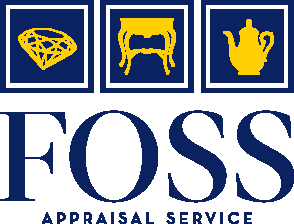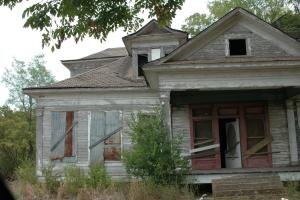What You Need to Know to Donate Used Building Materials!
Buying a House That Needs to GO?
If you are considering buying a piece of real estate and have plans to either tear it down or complete a major renovation you might consider donating the usable building materials to charity.
Before you ask, no, the charity is not planning on making a house out of your used windows, doors, cabinets or flooring.
There are many charities across the country that have established techniques for receiving used building materials in order to sell them and raise capital for non-profit purposes. Some examples of such charities in the Seattle area are: Habitat for Humanity, Earthcorps, Historic Seattle or The Re-Store.
Each of these charities work with salvage professionals who specialize in working with home-owners to ensure that as much of the project is diverted from the landfill and is either recycled, re-purposed or re-used. These salvage companies (in the Seattle area) include: Earthwise, Second Use and The Re-store. All of these companies work with the same method, they sell the salvaged building materials and use the proceeds to support one of the previously mentioned charities.
Sounds simple, right?
In some ways it is, but it gets more complicated when you want to receive a tax benefit from the donation.
According to the IRS any non-cash charitable donation valued at over $5,000.00 requires an appraisal be completed prior to the donation. They also require that the appraisal be conducted by a qualified appraiser.
Are you confident that you know the rules?
From the IRS website:
Section 170(f)(11)(E)(ii) provides that the term “qualified appraiser” means an individual who (1) has earned an appraisal designation from a recognized professional appraiser organization or has otherwise met minimum education and experience requirements set forth in regulations prescribed by the Secretary, (2) regularly performs appraisals for which the individual receives compensation, and (3) meets such other requirements as may be prescribed by the Secretary in regulations or other guidance. Section 170(f)(11)(E)(iii) further provides that an individual will not be treated as a qualified appraiser unless that individual (1) demonstrates verifiable education and experience in valuing the type of property subject to the appraisal, and (2) has not been prohibited from practicing before the Internal Revenue Service by the Secretary under § 330(c) of Title 31 of the United States Code at any time during the 3-year period ending on the date of the appraisal.
This is where it starts to get complicated. In plain english you need to make sure that the appraiser you choose to value the donation is qualified to do so in the eyes of the IRS.
The appraiser must:
Be a member in good standing of a recognized professional appraiser organization, these include but are not limited too: The ISA or the AAA.
Be a professionally practicing appraiser, this means you cannot have a friend join the ISA and do your one appraisal.
Most importantly the appraiser you choose must have demonstrated verifiable education and experience in valuing the type of property being appraised. This means you can’t go to a jewelry appraiser and have them appraise your used building materials.
While any one of these qualifications are NOT difficult to find. Putting all three together in one appraiser for your used building materials donation IS difficult.
Chris Foss, ISA-AM is the principal appraiser for Foss Appraisal Service and meets all of these qualifications. Chris is a member of both the International Society of Appraisers. Chris is a full-time appraiser who has been offering personal property appraisals over the last 15 years and has operated Foss Appraisal Service since 2006. Chris has worked with Second Use Building Materials in their receiving department purchasing, researching and selling used building materials.
Chris is available to talk with you or your General Contractor about how an appraisal might assist you with gaining valuable tax benefits from your donation.
The savings are not only tax refunds.
King County has instituted many green building incentives to encourage green practices such as used building material salvage.
From the King County Department of Development and Environmental Services website:
What is meant by green building?
Green building, or sustainable building, in King County refers to design, construction, and operation practices that significantly reduce resource consumption and environmental impacts through
sustainable site planning
energy efficiency
water conservation
waste minimization
pollution prevention
using resource-efficient materials
providing enhanced indoor environmental quality for occupants.
Greenbridge, a Built Green development. Learn about incentives for going green.
Go-green incentives: DDES permitting incentives as well as state, federal, and utility energy-efficiency incentives are available to help encourage green building and low impact development in unincorporated King County.
Call Foss Appraisal Service, 206-708-7393 today to learn how valuable a used building material appraisal can be.


